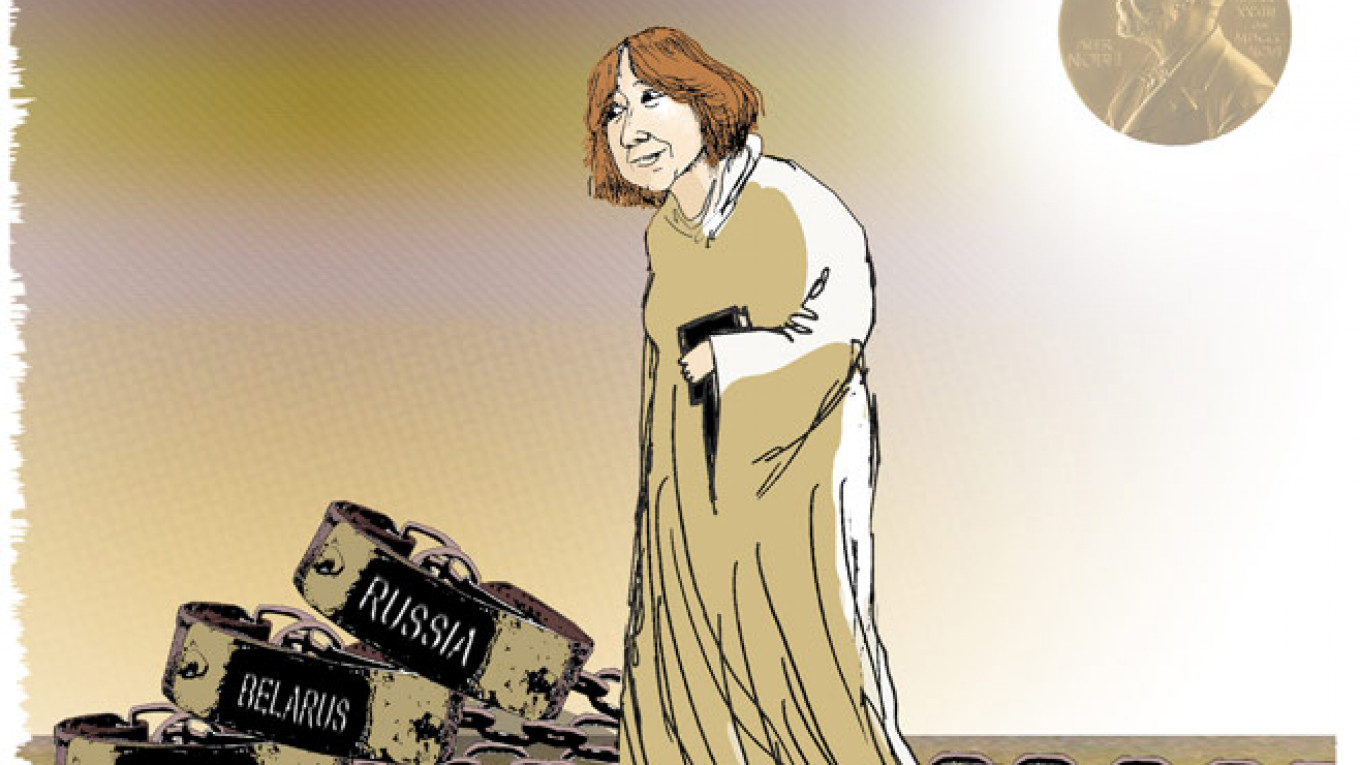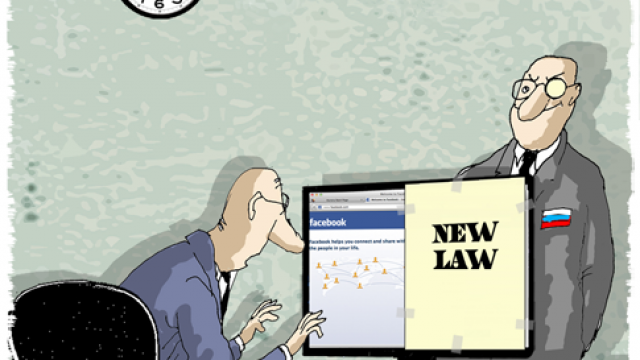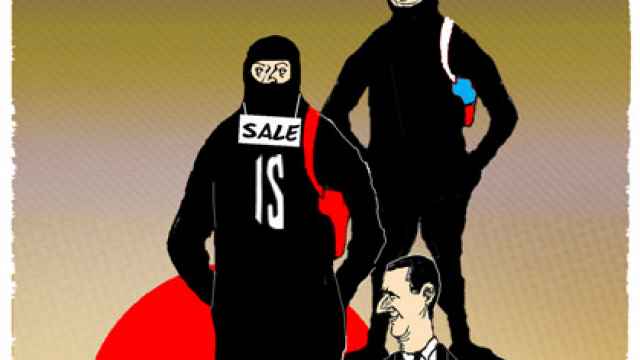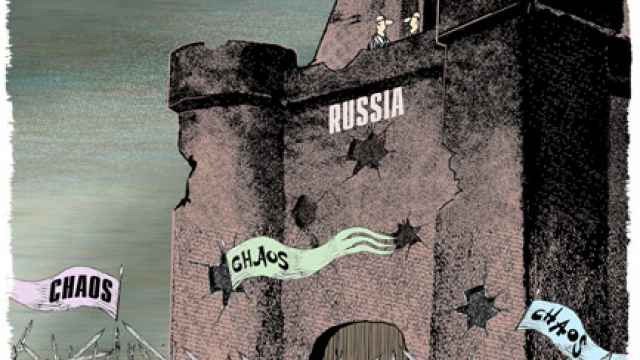Belarussian author Svetlana Alexievich had long been considered for the Nobel Prize for Literature. However, there is deep symbolism in the fact that she won the award this year for work that the Nobel Committee called "a monument to suffering and courage in our time." Even if that committee had not intended any social or political subtext, such connotations are inevitable when it comes to great literature.
This award is rife with symbolism. Alexievich was born in Ukraine, perhaps the sorest spot in European politics today. She first gained notice during the Soviet era and studied under Vasily Bykau, the most famous Soviet-era Belarussian writer and author of arguably the most poignant and truthful books about the World War II, a horror that was especially tragic for the people of Belarus, where one in every four citizens died.
Alexievich came to prominence by addressing the "military theme" back in the 1980s. The book "The War's Unwomanly Face" has sold more than 2 million copies and remains her most famous work. In fact, the war itself defines the spirit of the modern "Russian world" for most living Russians.
Alexievich, who writes primarily in Russian, is very much a part of this "Russian world" — that is, in the cultural and civilizational sense, and not in the political or military sense that gained currency during events in Ukraine.
This "Russian world," this "Russian civilization" now stands at possibly the most critical juncture of its existence. And it is very timely that a Russian-language Slavic author who writes that this "Russian world" is standing at the threshold of the deepest crisis of its long history has received this award now.
In fact, there was also a certain timeliness to the occasions when the Nobel was awarded to other Russian-language authors before her. These include Ivan Bunin in 1933, which I feel was approximately 10 years past due; Boris Pasternak in 1958, at the start of the "Khrushchev thaw," thus mitigating somewhat the award's usual Western bias; Mikhail Sholokhov in 1965 when the "thaw" had ended and the Soviet system seemed a picture of health and vigor; Alexander Solzhenitsyn in 1970, when it was already clear that "a lack of freedom" best characterized the malady afflicting the Soviet regime; and finally, Joseph Brodsky in 1987, when it became clear that this lack of freedom would spell the end for the Soviet regime.
Alexievich always focuses on the human experience in her books, whether in "The Last Witnesses" that also examines war, "Zinky Boys" about the Afghan War, or "Voices From Chernobyl," about life in the wake of that nuclear plant disaster.
Her writing examines what extremes people can endure and still remain human, and just what it takes for them to lose their humanity.
Alexievich formulates her credo this way: "I always want to know how much humanity is in a person, and how to safeguard that humanity in the person."
She bravely melds the conventions of journalism and fiction and has been described as the first journalist to win the Nobel Prize for Literature.
In her most recent book, "Second-Hand Time," published in 2013, she asks what post-Soviet society has failed to accomplish in the last quarter century and why. She examines how Russia has fallen short as a country, and how it hasn't managed to achieve one "trivial little" goal — to become more free.
In her opinion, post-Soviet society was not ready for the freedom handed to it in the 1990s and preferred a return to order, even if it meant a return to labor camps and punitive government.
Of course, many observers will ascribe political motives to this decision of the Nobel Committee. Some were probably certain that no matter what she did, Alexievich — who has lived part-time in Europe since the early 2000s and has gained renown there, and who has lately made a number of highly critical remarks about the Russian regime and, less significantly, about Belarussian President Alexander Lukashenko — would never receive the Nobel Prize. She has also criticized Russia's annexation of Crimea.
Many Western media outlets recalled that it was Alexievich who had written about the fact that Soviet soldiers had raped German women during the occupation of that country in World War II. That subject caused heated debate during the recent war victory anniversary celebrations, as well as strong condemnations of the "national traitors" who had tried to "blow it out of proportion."
However, even if Alexievich's "visibility" as a Nobel candidate increased as a result of her public statements, not only is that in keeping with the traditions of the Nobel Committee — which has always regarded literature as part of a broader social process — but it also fits with the traditions of Russian literature.
That is because the greatest works of literature are born from the "fault line" between the artist and the ruling authorities, a sometimes very dramatic schism that can pass beyond humanitarian issues into the realm of politics. And never the twain shall meet.
Georgy Bovt is a political analyst.
A Message from The Moscow Times:
Dear readers,
We are facing unprecedented challenges. Russia's Prosecutor General's Office has designated The Moscow Times as an "undesirable" organization, criminalizing our work and putting our staff at risk of prosecution. This follows our earlier unjust labeling as a "foreign agent."
These actions are direct attempts to silence independent journalism in Russia. The authorities claim our work "discredits the decisions of the Russian leadership." We see things differently: we strive to provide accurate, unbiased reporting on Russia.
We, the journalists of The Moscow Times, refuse to be silenced. But to continue our work, we need your help.
Your support, no matter how small, makes a world of difference. If you can, please support us monthly starting from just $2. It's quick to set up, and every contribution makes a significant impact.
By supporting The Moscow Times, you're defending open, independent journalism in the face of repression. Thank you for standing with us.
Remind me later.







